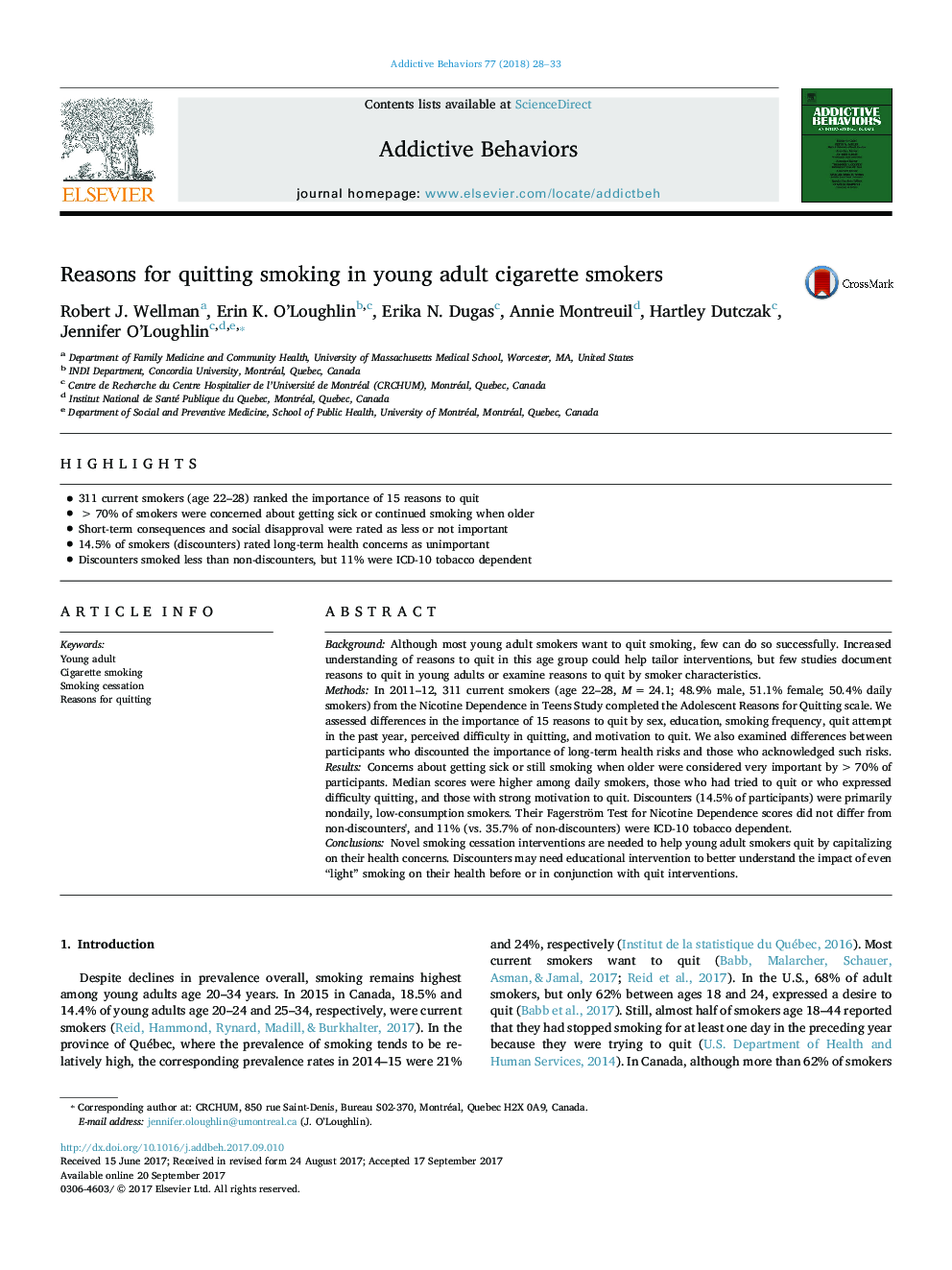| کد مقاله | کد نشریه | سال انتشار | مقاله انگلیسی | نسخه تمام متن |
|---|---|---|---|---|
| 5037528 | 1472494 | 2018 | 6 صفحه PDF | دانلود رایگان |
- 311 current smokers (age 22-28) ranked the importance of 15 reasons to quit
- >Â 70% of smokers were concerned about getting sick or continued smoking when older
- Short-term consequences and social disapproval were rated as less or not important
- 14.5% of smokers (discounters) rated long-term health concerns as unimportant
- Discounters smoked less than non-discounters, but 11% were ICD-10 tobacco dependent
BackgroundAlthough most young adult smokers want to quit smoking, few can do so successfully. Increased understanding of reasons to quit in this age group could help tailor interventions, but few studies document reasons to quit in young adults or examine reasons to quit by smoker characteristics.MethodsIn 2011-12, 311 current smokers (age 22-28, MÂ =Â 24.1; 48.9% male, 51.1% female; 50.4% daily smokers) from the Nicotine Dependence in Teens Study completed the Adolescent Reasons for Quitting scale. We assessed differences in the importance of 15 reasons to quit by sex, education, smoking frequency, quit attempt in the past year, perceived difficulty in quitting, and motivation to quit. We also examined differences between participants who discounted the importance of long-term health risks and those who acknowledged such risks.ResultsConcerns about getting sick or still smoking when older were considered very important by >Â 70% of participants. Median scores were higher among daily smokers, those who had tried to quit or who expressed difficulty quitting, and those with strong motivation to quit. Discounters (14.5% of participants) were primarily nondaily, low-consumption smokers. Their Fagerström Test for Nicotine Dependence scores did not differ from non-discounters', and 11% (vs. 35.7% of non-discounters) were ICD-10 tobacco dependent.ConclusionsNovel smoking cessation interventions are needed to help young adult smokers quit by capitalizing on their health concerns. Discounters may need educational intervention to better understand the impact of even “light” smoking on their health before or in conjunction with quit interventions.
Journal: Addictive Behaviors - Volume 77, February 2018, Pages 28-33
